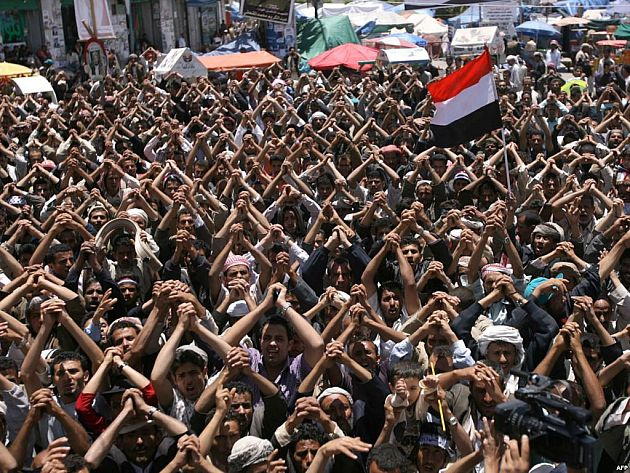Possibility of Iran-Saudi Win-Win Game in Yemen

Developments in Yemen and the hundreds killed and wounded in these events showed signs of a change in the political structure of this country. But this change ended to the benefit of the Houthis. What is important is the silence of the Persian Gulf Littoral States and the type of change in the political structure; what happened in Yemen which led to such a change in the political system of this country?
The developments of the recent week were natural and it was predictable that the Houthis and Ansarullah would come to the capital and control Sana’a. The reason was the non-coordination of the Yemeni government to the extent that Mansour Hadi, the president, was not able to coordinate the economic and political issues. Therefore, coordination was created between the Houthis, Ansarullah and part of the army which prepared a suitable ground for the control of the capital. In fact, Yemen surrendered to the demands of the people. This was a huge movement. But the question is why Saudi Arabia and Qatar pursued an encouraging position in the agreement reached between the Houthis and the president and took a positive position. As you know, Qatar supported the Muslim Brotherhood in Egypt and even in Syria and Iraq. But during recent months, Qatar reduced its support for the Muslim Brotherhood. This was due to the situation in Egypt, Iraq and Syria which distanced this country from Yemen’s adventurisms. Saudi Arabia cautiously welcomed the movement of Ansarullah and the Houthis. The reason was, first, the weakening of the Muslim Brotherhood and, second, the realities in Yemen. Saudi Arabia could not stop the popular movement of Ansarullah and other groups and thus it was forced to cautiously welcome it. On the other hand, the Houthis were able to take advantage of the situation in the region. They not only took advantage of the situation in Yemen but also of the political equations of the region at the right time. In other words, they used the two elements of time and place well and undertook a successful movement.
There is this view that Iran and Saudi Arabia are attempting to reach an understanding in the establishment of a new regional system wherein there would be a power balance between the allies of these two countries. Is this view in line with the developments in Yemen?
It is too early for such an understanding to be reached between Iran and Saudi Arabia. Although Mr. Abdollahian’s visit of this country was a success and also a meeting was held between Mr. Zarif and his Saudi counterpart in New York, it seems impossible that these meetings will reach a level at which a political understanding would be reached in Yemen. Saudi Arabia was the leader of the plan proposed by the Persian Gulf Littoral States; a plan which Yemen was also a part of. While the movement of the Houthis was not in the interest of Saudi Arabia, it cautiously welcomed it. Therefore, the level of the relations between Iran and Saudi Arabia has not reached the point for these understandings to be reached. But perhaps the interests of both sides – Iran and Saudi Arabia – have been safeguarded.
Saudi Arabia has preferred the pact between Iran, Hezbollah and the Houthis over the continuation of the presence and power of the Muslim Brotherhood and has allowed the Houthis’ advance and ultimately capture of Sana’a. Is this viewpoint in line with the reality of the political scene in Yemen?
From the beginning, no strong and strategic role was seen for Saudi Arabia in Yemen. Saudi Arabia insisted from the beginning of its entrance into Yemen that the Security Council issue a resolution. At the same time, it attempted to internationalize the situation in Yemen. But this was not to the benefit of Saudi Arabia, Yemen and even other Persian Gulf Littoral States. Saudi Arabia has realized that the leadership plan of the Persian Gulf States has not succeeded in Yemen. This analysis that Saudi Arabia should use the Houthis and Ansarullah to fight the Muslim Brotherhood is also illogical. The reason is that with the presence of the Muslim Brotherhood and the Salafis in Yemen, the Houthis can interact with all the political groups in order to achieve unity and meet the demands of the people. Therefore, the future of Yemen will be to the benefit of the Houthis and Ansarullah and not to the benefit of Saudi Arabia.

